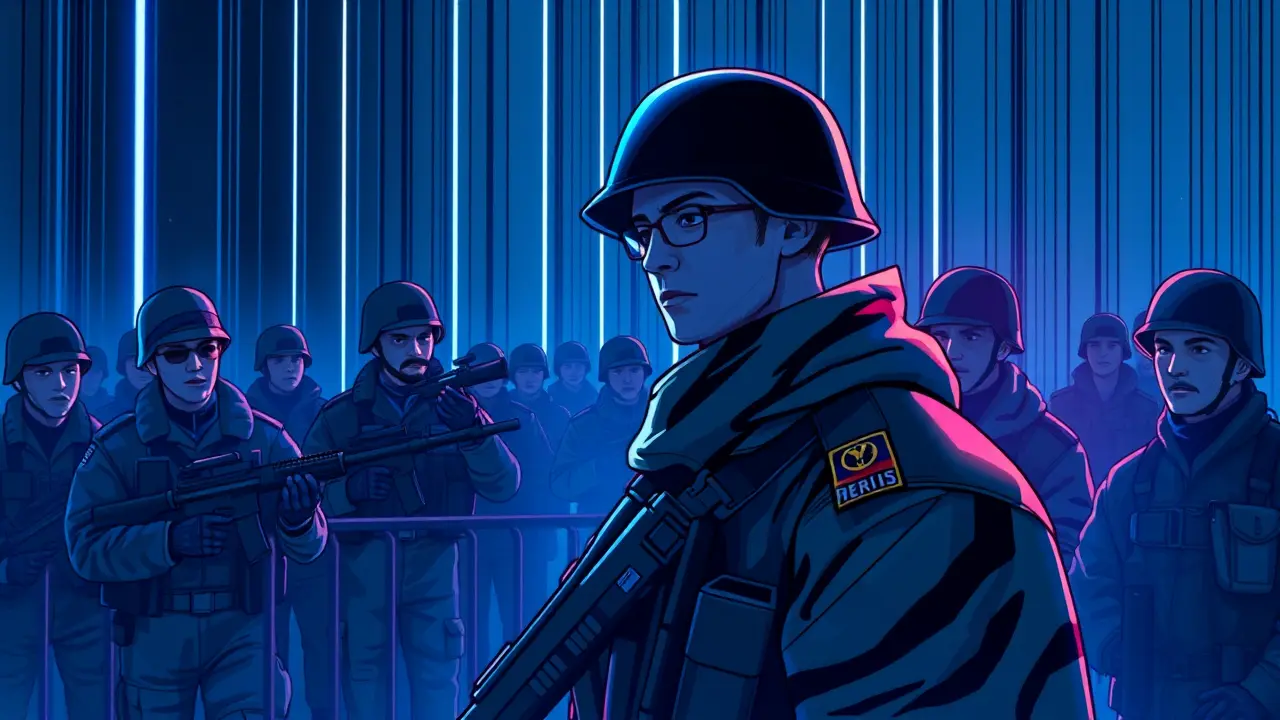
Politicscourts & investigations
Russian Soldier Jailed for Life for Killing Ukrainian POW.
EM
Emma Wilson
5 hours ago7 min read1 comments
In a landmark ruling that reverberates through the corridors of international law and the frozen battlefields of Eastern Ukraine, a Zaporizhzhia court delivered a seismic verdict on Thursday, sentencing 27-year-old Russian soldier Dmitry Kurashov to life imprisonment for the unequivocal war crime of executing Ukrainian prisoner of war Vitalii Hodniuk. This case, the first of its kind in Ukraine's relentless pursuit of legal accountability, centers on a harrowing incident from January 2024, when Hodniuk, having surrendered after his dugout was overrun by Russian forces, was summarily shot by Kurashov—an act captured not just in the testimony of fellow prisoners but in the grim, unblinking ledger of this conflict.For observers like myself, who start each morning scanning Reuters alerts with a sense of dread and hope, this judgment is more than a single conviction; it is a fragile beacon of justice in a war characterized by its brutal asymmetry and alleged systemic atrocities. The courtroom, a bastion of strained civility in the southeastern city often under threat of Russian shelling, became a stage for a profound moral reckoning.The prosecution painted a picture of Hodniuk not as a statistic, but as a man—a soldier who, following the rules of war, laid down his arms only to be met with a bullet, a stark violation of the Geneva Conventions that have sought to maintain a sliver of humanity in combat since the aftermath of World War II. Kurashov, now himself a prisoner of war in Ukrainian custody, represents a critical test case for the global legal principle of universal jurisdiction, where the gravest of crimes can be prosecuted irrespective of nationality.The emotional gravity in the room was palpable; one can only imagine the silent tears of Hodniuk's family, for whom this life sentence offers a measure of closure but no return of a son, a brother, a father. This ruling sends an unequivocal message to Moscow, whose state media often portrays its soldiers as liberators, that individual acts of barbarism will be documented, tried, and punished.Yet, it also raises complex, thorny questions about the feasibility of such justice on a larger scale. With the International Criminal Court in The Hague also issuing arrest warrants for higher-ranking Russian officials, including President Putin, for alleged war crimes involving the deportation of children, we are witnessing a fragmented but determined global effort to build a legal bulwark against impunity.The challenge, however, is Herculean. Can a life sentence for one soldier meaningfully deter a military apparatus accused of widespread abuses in Bucha, Mariupol, and beyond? Military analysts and human rights experts I've been following warn that while symbolically potent, this is but a single brick in a long road to accountability.The verdict also places Ukraine’s judicial system under an international microscope, testing its ability to conduct fair trials for enemy combatants amidst an ongoing invasion—a demonstration of its commitment to the very rule of law it accuses Russia of flouting. For the thousands of Ukrainian POWs still held in dire conditions, and for the Russian soldiers who may one day face similar judgments, this case sets a precedent that surrender should mean safety, not a death sentence. As the world watches, this life term echoes beyond the courtroom walls, a somber note in the symphony of this war, reminding us that even in the darkest hours, the struggle for justice persists, fueled by evidence, upheld by law, and remembered in the name of every fallen soldier like Vitalii Hodniuk.
#Ukraine
#Russia
#war crime
#POW
#life sentence
#trial
#Zaporizhzhia
#featured
Stay Informed. Act Smarter.
Get weekly highlights, major headlines, and expert insights — then put your knowledge to work in our live prediction markets.
© 2025 Outpoll Service LTD. All rights reserved.